Navigating the complexities of supplier contracts can be challenging, especially when the need for cancellation arises. Whether it's due to unmet expectations, changing business needs, or other unforeseen circumstances, knowing how to communicate this decision effectively is crucial. In this article, we'll explore a structured letter template that makes the process straightforward and professional. So, let's dive in and equip you with the tools to handle this important task with confidence!

Clear subject line
Supplier contract cancellation requires careful attention and clarity. A clear subject line such as "Notice of Supplier Contract Termination" ensures immediate understanding of the document's purpose. The decision to terminate a contract may arise from various factors including unsatisfactory performance, changes in business needs, or financial constraints. It is essential to refer to specific sections of the contract outlining termination procedures, such as notice periods typically ranging from 30 to 90 days. Providing detailed reasons for cancellation promotes transparency and maintains a professional relationship, especially within industries like manufacturing or retail, where ongoing collaboration is often required. Finalizing the cancellation process must also include a review of outstanding obligations, including payment settlements, inventory returns, or service completion requirements.
Supplier and purchaser details
Supplier contract cancellation involves notifying both the supplier and purchaser of the decision to terminate the agreement. Essential details include supplier information, such as name and contact details, along with purchaser information that encompasses name, address, and relevant company identification. Clearly stating the contractual reference number, along with the effective date of cancellation, is crucial. Provide specific reasons for the cancellation to ensure transparency, such as performance issues, alignment with business objectives, or changes in market conditions. Include instructions for returning any outstanding goods or settling payments to facilitate a smooth closure of the business relationship.
Contract reference number
Contract cancellation often involves various details, including contract reference numbers, which serve as unique identifiers for specific agreements. Under circumstances such as breach of contract, changes in business conditions, or shifts in partnership strategies, organizations may seek to officially terminate supplier contracts. Notably, the contract reference number plays a critical role in ensuring clarity and precision during the cancellation process, allowing both parties to identify the exact terms and conditions being dissolved. It's essential to outline the reasons for cancellation succinctly while referencing any relevant clauses as stated in the original agreement. Furthermore, providing a clear timeline, along with any obligations that remain post-cancellation, is crucial for maintaining professional relationships.
Reason for cancellation
The cancellation of the supplier contract stems from a series of significant issues that have emerged in recent months. Consistent delays in delivery schedules have disrupted our operational workflow, with lead times extending beyond the agreed timeframe of 30 days. Quality control failures have also been noted, with numerous shipments receiving complaints regarding defective products, which affect our product integrity. Moreover, communication lapses have hindered effective problem resolution, leaving critical inquiries unresolved for weeks. Due to these persisting challenges, the decision to terminate the supplier agreement has become necessary to ensure that our business maintains its commitment to quality and reliability.
Termination date and arrangements
In the context of supplier contracts, the termination of a contract refers to the formal ending of a legally binding agreement between two parties, typically involving the provision of goods or services. A termination date signifies the exact date when the contract ceases to be in effect, which needs to be communicated clearly to avoid misunderstandings. Arrangements following the cancellation may include returning any outstanding goods, settling final invoices, or addressing remaining obligations outlined in the contract, such as warranties or disputes. Additionally, if the contract is terminated prematurely without mutual consent, implications for penalties or fees must be thoroughly evaluated, ensuring compliance with local laws governing contract termination. In sectors such as manufacturing or logistics, the timing of the termination is crucial to maintain operational continuity while safeguarding the interests of both parties.

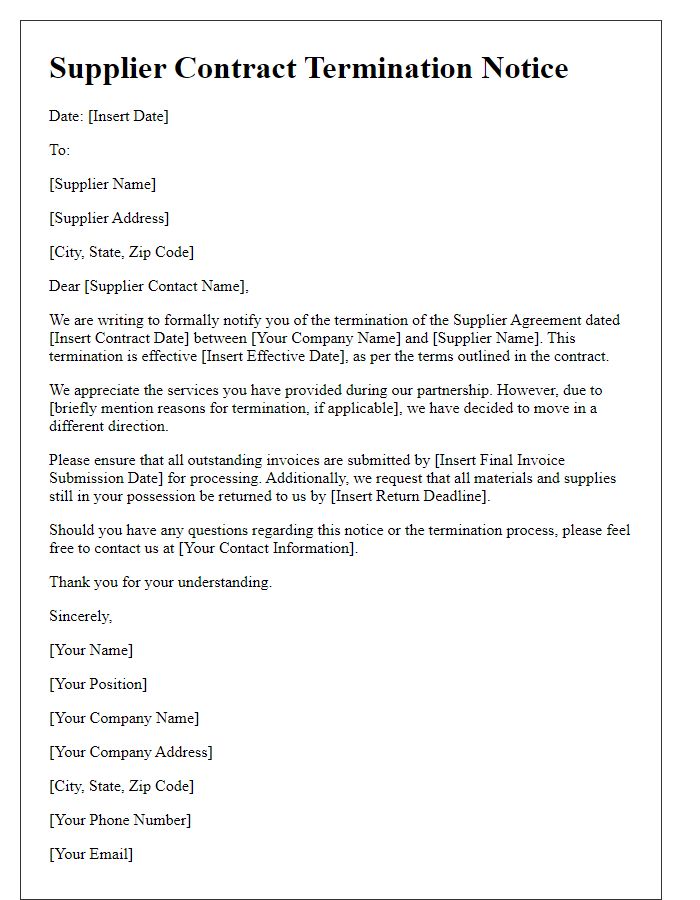
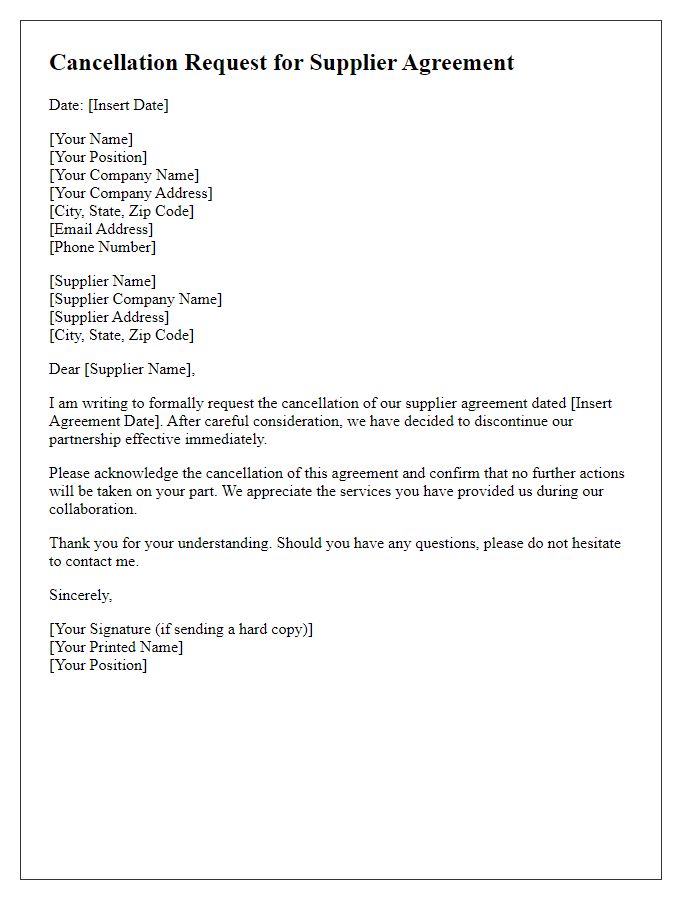
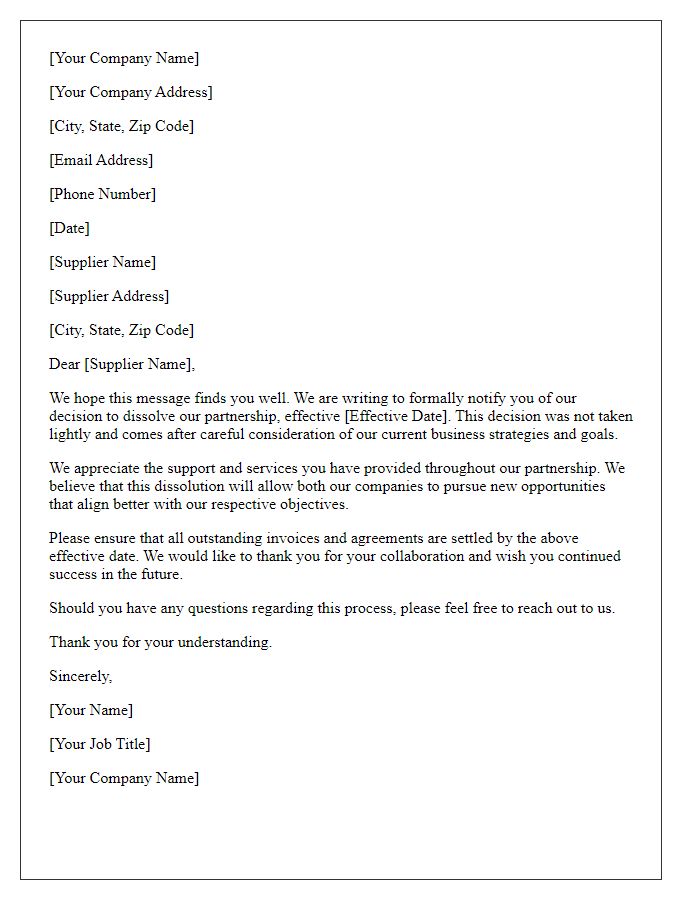
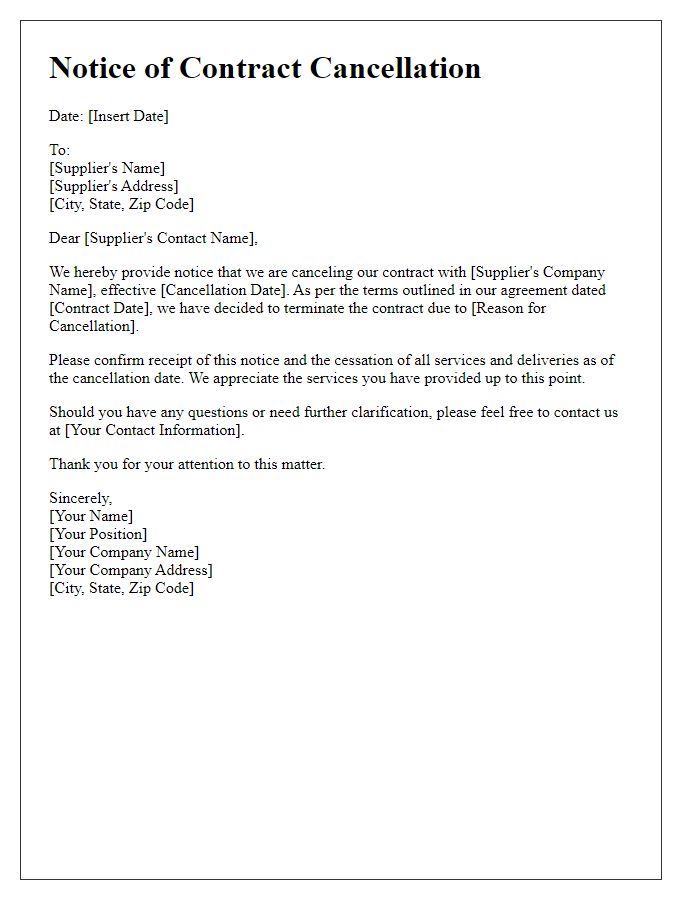
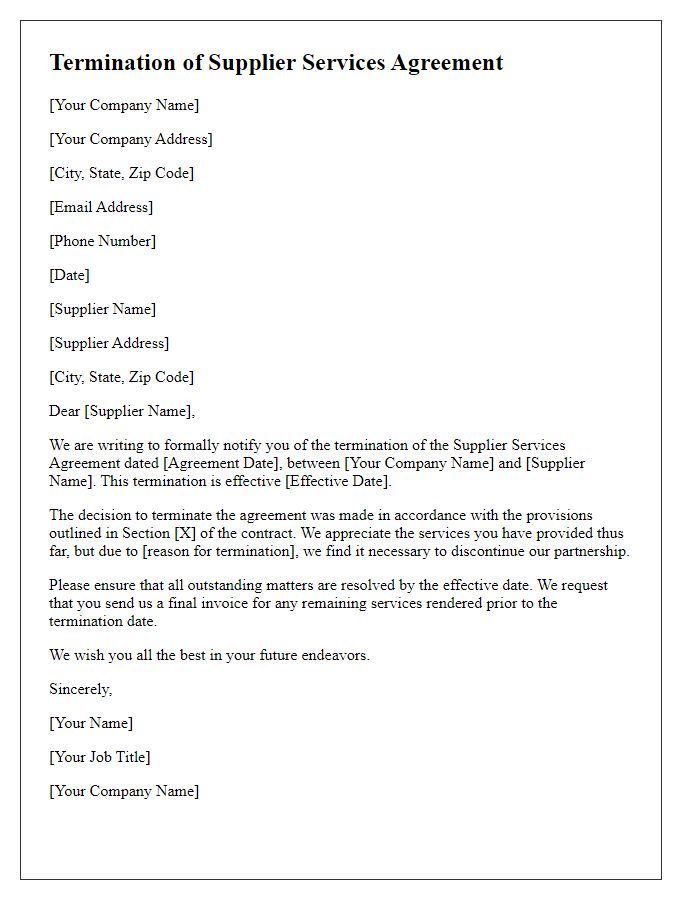
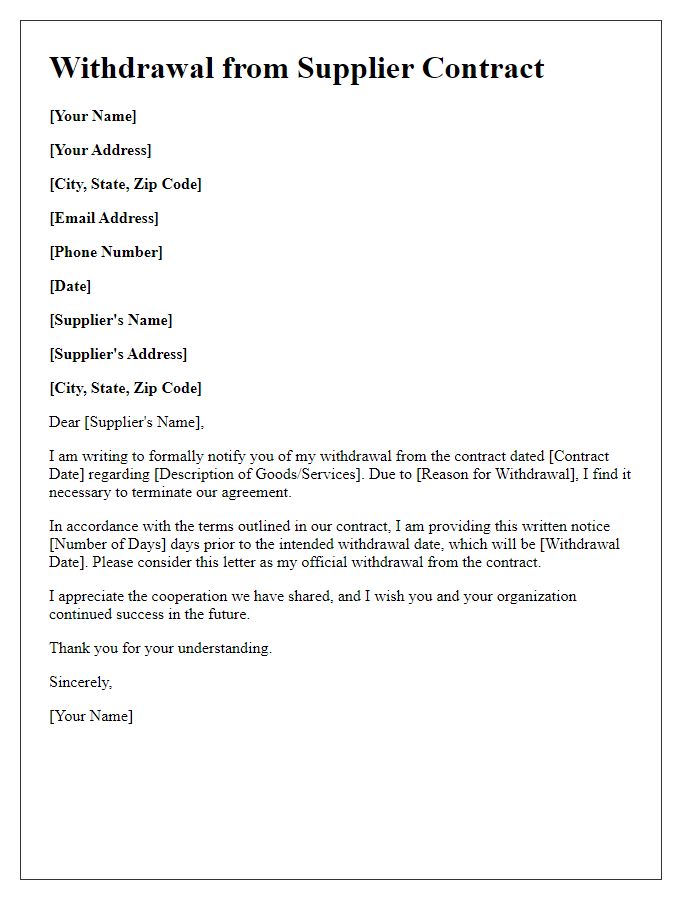
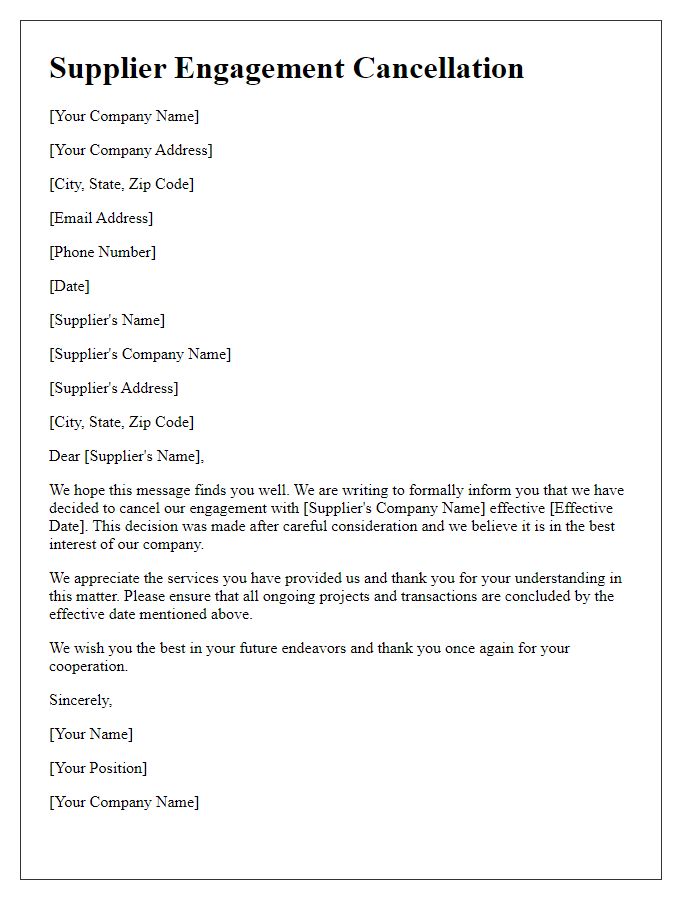
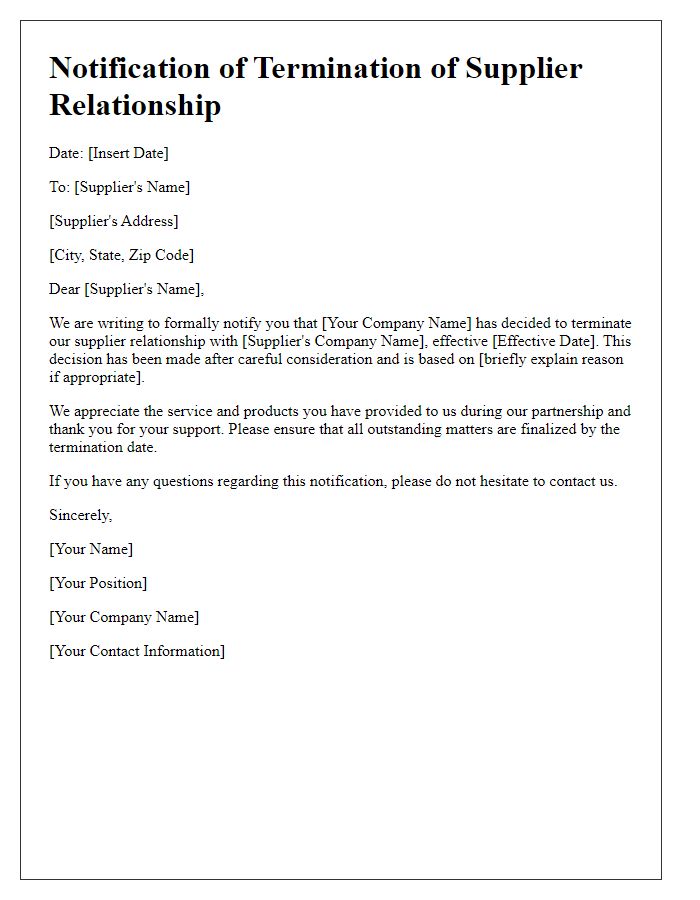
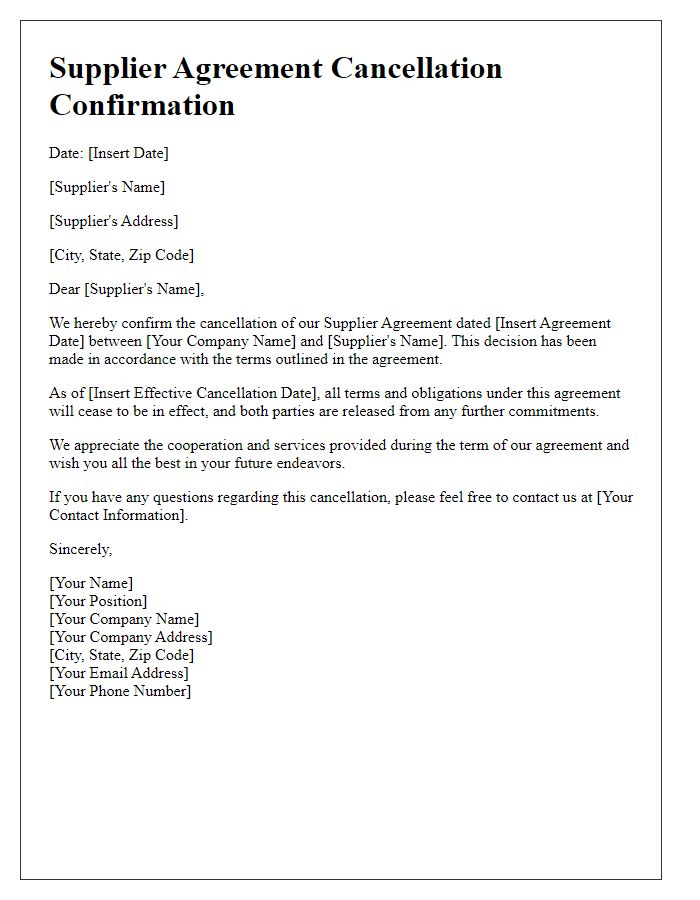
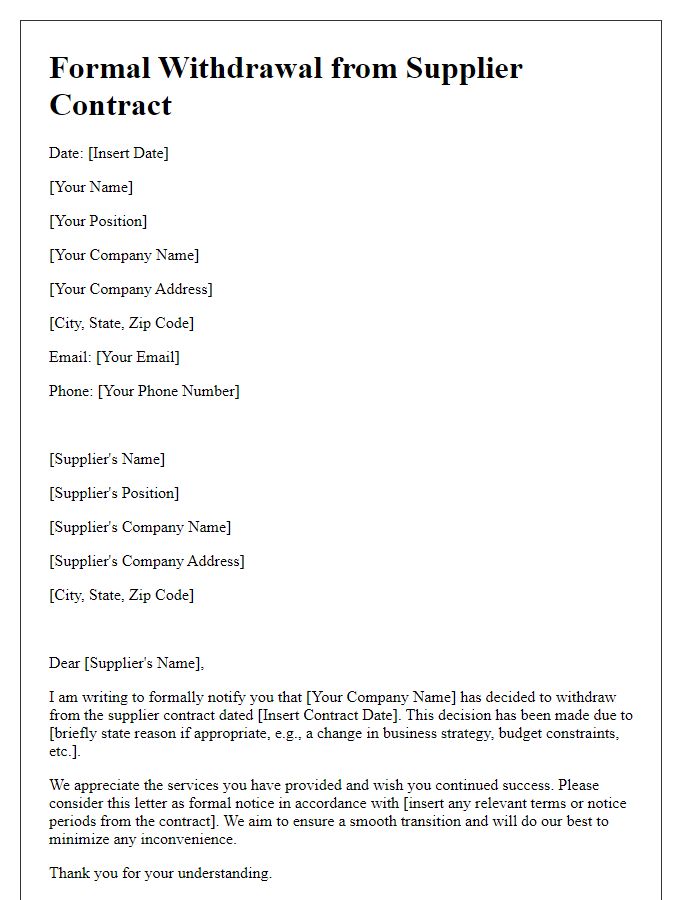


Comments